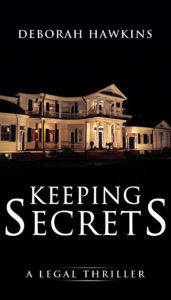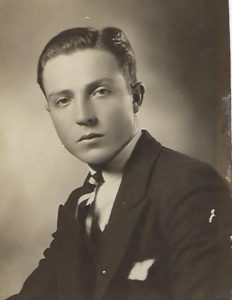Chapter One, Keeping Secrets, A Legal Thriller
THE EXECUTION ORDER
“I am dying in my own death and in the
deaths of those after me.”
T.S. Eliot
CHAPTER ONE
Tuesday, January 3, 2017, I-95 South from Richmond to Death Row at Sussex State Prison, Sussex, Virginia
Brendan Murphy drove south on the I-95 toward Sussex that morning with his heart aching. He glanced over at his briefcase on the passenger seat next to him, wishing he could toss it out the window. He imagined it coming to rest in a half frozen puddle of dirty snow along the shoulder of the freeway, languishing there with Edward Wynne Carter III’s execution warrant unread and unnoticed.
If only saving Ed’s life could be that direct and simple. Brendan had been trying for thirty-one years to make the Commonwealth of Virginia admit that Ed had not killed his barely pregnant wife, Anne Fairfax Carter, on a cold November night in 1983, while their four-year-old son Wynne slept in his crib, behind the locked door of his nursery. But to no avail. The Commonwealth’s Attorney, Gordon Martin Fairfax and Anne’s first cousin, was so hell bent on vengeance that he had thrice convicted the wrong man.
“Why did you take this case?” his wife Emma had asked him last night as they sat in front of the fire in the spacious great room of their six-thousand-square-foot, three-story, brick colonial in Richmond’s exclusive Windsor Farms.
They were slowing down at sixty-six. The thought made him smile as he drove. Now they liked to sit in front of the fire at night, talking and sipping good scotch, instead of going to concerts and dinner parties, and charity events. Well, he didn’t mind. He’d spent his career in the Richmond office of Craig, Lewis, and Weller. He’d officially retired last October. He was still a partner, but now his name appeared in the “Of Counsel” column on the firm’s letterhead. He went to his office only three days a week, and he had handed off most of his cases to other attorneys. But not Ed’s. He hadn’t wanted to give up his hard-charging career this early, but Emma, an accomplished pediatric cardiologist, had insisted. Stress had taken its toll, and he’d had a serious heart attack last spring.
To encourage him to back down from long hours at the firm, she had reduced her own hours at the Medical College of Virginia. She taught only one class and saw patients in her office only two days a week. Now they had time to spend with their grandchildren, five-year-old Jamie, Timothy’s son, and four-year-old Gwen, Ellen’s daughter. They spent days at King’s Dominion and Williamsburg, and went to visit the animals at Maymont Farms. And at Christmas, Brendan had overseen Jamie and Gwen’s delighted squeals as they had sledded on the softly sloping hill in the backyard that Ellen and Timothy had loved so well.
But now the magical Christmas snow was nothing but gray slush, and Brendan was on the saddest journey of his life. He glanced down and saw that the Range Rover was picking up speed too easily. He wanted the fifty-minute commute to last as long as possible to delay the minute when he’d have to look into Ed’s kind brown eyes and tell him that he would draw his last breath on Friday, March 3 at 9 p.m. in the execution chamber at Greensville State Prison at Jarrat, Virginia.
“Ed’s mother asked me to take his case,” Brendan drew Emma closer as they cuddled on the sofa under an afghan she had knitted.
“Caroline Randolph Carter?”
He nodded. “She knew me from church.”
“I’m surprised the firm let you accept it.”
“I wasn’t. Although my section of litigation accepted only white collar crime for our corporate clients, Craig, Lewis wasn’t about to turn down the matriarch of the Carter and Wynne families of Carter’s Grove Plantation.”
“Why didn’t you represent Ed in his first trial?”
“Caroline wouldn’t help him the first time around. She thought it was beneath a Carter to get himself arrested for murder. He was represented by Brad O’Connor over at the Public Defender’s Office. But when the Virginia Supreme Court threw out his first conviction, she decided she’d better spend some money to get the truth in front of a jury. But damn it, Emma, no jury has ever understood that Ed was in Charlottesville presenting a paper at a legal conference the night Anne was murdered.”
Emma rubbed his cheek softly. “I know how hard this is for you. Promise you won’t let the stress get to you.”
He kissed her softly on the cheek. “I wish I could make you that promise. But I only have sixty days left to save Ed’s life.”
“So you’re going to try for a stay?”
“A stay, a commutation, a pardon. Whatever the hell I can get. He’s innocent, Emma, you know that. I’m not going to let the Commonwealth murder an innocent man who’s become my friend.”
She laid her head on his shoulder and stroked his cheek. “I have some happier news.”
He looked down at her. She was still beautiful. She cut her hair short now to accent her wide, dark eyes, always full of compassion and love. The extra pounds of middle age still sat well on her five-seven frame. She had beautiful hands with long graceful fingers that stitched together tiny hearts in the OR. She’d chosen the right profession, he thought. She was a consummate healer.
“I’d love to hear something cheerful.”
“Claire is finally getting married.”
“Claire? Our Claire? Tyndall’s daughter? Ellen’s best friend from St. Catherine’s?”
“Yes! Isn’t it great news?”
“Not if it’s to that jerk who led her on for years and then broke her heart last summer with some woman he’d just met.”
“No, it’s not him. He lives in San Diego or Los Angeles. I’m not sure which. Ellen said Claire’s fiancé lives in New York. She met him after she went back last spring. He’s a couple of years older than Claire. Ellen said he’s done very well in venture capital.”
“Then he isn’t marrying Claire for her money.” As he spoke, he wiggled out of her grasp and started to get up, but she put out her hand.
“Why do I think you are going to the liquor cabinet for a refill?”
“Because I am.”
“No, you’re not. It’s nearly midnight, and you said you’ll be leaving for Sussex at eight in the morning. Your heart needs sleep, not more scotch.”
“I don’t think I can sleep.”
“Try. But no more scotch. Come on, let’s go to bed.”
How lucky am I, he thought, as they climbed the stairs together. I have her and Tim and Ellen and Gwen and Jamie and more money than I’ll ever spend. Ed was supposed to have those things, too. I can’t let him die. I can’t let him die.
To see what happens next, click on the image below!


